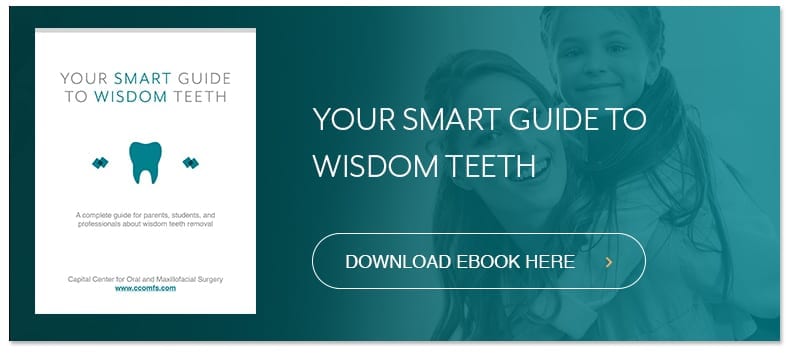 Wisdom teeth, for the majority of people, will cause problems as they begin to develop in the late teens or early 20s. The best time for wisdom teeth removal, oral surgeons will tell you, is before those problems begin. So how can a parent know when the time is right for their child to have wisdom teeth removal? By being proactive. Make sure that your child is seeing a dentist regularly to ensure that wisdom teeth development is monitored carefully. Today’s dental care technology makes it possible to spot potential problems with wisdom teeth very early and have them removed before any damage is done.
Wisdom teeth, for the majority of people, will cause problems as they begin to develop in the late teens or early 20s. The best time for wisdom teeth removal, oral surgeons will tell you, is before those problems begin. So how can a parent know when the time is right for their child to have wisdom teeth removal? By being proactive. Make sure that your child is seeing a dentist regularly to ensure that wisdom teeth development is monitored carefully. Today’s dental care technology makes it possible to spot potential problems with wisdom teeth very early and have them removed before any damage is done.
Wisdom Teeth Removal: Why It’s Usually Necessary
Wisdom teeth, or third molars, typically emerge at the back of the mouth between the ages of 17 and 24 in the average person. Unfortunately, most people don’t have enough room in the jaws for these teeth to emerge properly. There are a couple of reasons for this lack of space. Firstly, the human jaw has gotten smaller over time, leaving us with less room for third molars than our ancient ancestors had. Secondly, we are able to take better care of our teeth today than were previous generations, so most of us still have all of them well into early adulthood. Generally, by the time wisdom teeth began to emerge in people 100 years ago, some teeth had already been lost to tooth decay, creating room for those third molars.
Wisdom teeth that attempt to erupt into limited space can cause a variety of problems. As they maneuver for room to break through, they often become twisted or tilted, emerging in awkward positions – if they are able to emerge at all. Often, they become impacted, either partially or fully, blocked by neighboring teeth or bone. In partial impaction, only part of the tooth emerges through the gum tissue, the rest remaining buried beneath the gum line. In full impaction, no portion of the tooth is visible, the tooth becoming entirely trapped beneath the gum. Problematic wisdom teeth, if left untreated, can cause shifting, damage or decay in surrounding teeth, inflammation and mouth pain, infection or gum disease, as well as cysts or tumors that may do damage to bones and nerves.
Wisdom Teeth Removal: How To Know When Your Child Should Have it Done
As a rule, once your child begins to experience symptoms of problematic wisdom teeth, chances are good that some damage has already been done to neighboring teeth. However, you don’t have to wait for symptoms to alert you to potential problems. If your child is seen regularly by your family dentist, wisdom teeth development can be closely monitored via X-rays and/or 3-D imaging, techniques that can help your dentist catch problems early and arrange for wisdom teeth removal before damage or discomfort occurs.
Additionally, when it comes to wisdom teeth removal, oral surgeons advise that earlier is better in terms of your child’s comfort. Wisdom teeth removal is most quickly and easily done before third molars have had time to fully develop their roots, making the procedure shorter and less traumatic for your child, leading to shorter recovery times and less risk of complications. So if your child is 14 or 15 and has not yet had those developing wisdom teeth checked by a dentist, make an appointment. A good examination is the best way to know for sure when the time is right for your child to have wisdom teeth removal.

To schedule a wisdom teeth removal consultation, contact our office at (202) 386-7100.